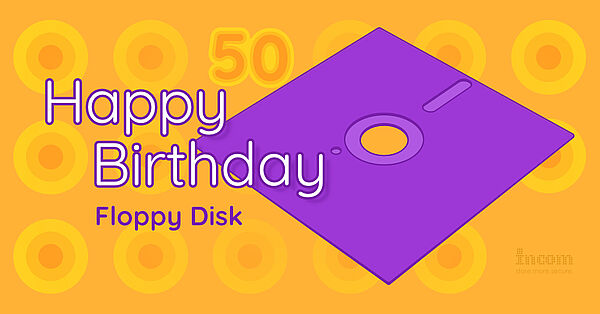Even if we still encounter the floppy disk symbol today as a button for saving data in all kinds of applications, the disks themselves have long been obsolete. Too quickly, the required storage capacity was too small for most purposes and with the advance of the CD from 1985 onwards, most software distributions were already made quite quickly via optical data carriers, for Windows 3.1 alone was already delivered on 7 floppy disks, which it then multiplied with each subsequent version.
Nevertheless, we still encounter exotic systems today where floppy disks are still used - according to the principle "never touch a runnig system". For example, we reported back in 2019 that the US defence magazine "C4ISRNET" published that the US Army had just switched the control of US nuclear weapons from eight-inch floppy disks to "highly secure digital solid state storage", or SSD / flash disks for short. What sounds unbelievable at first has a very serious background, however, because in such a sensitive and therefore closed and encapsulated system, viruses and other malicious code usually have no chance. "Lt. Col. Jason Rossi (Commander of the Air Force's 595th Strategic Communications Squadron) reported that "it is precisely the age that ensures the security of the systems, because what has no IP address is also difficult to hack.
Similar reports come from other sectors, such as nuclear power plants. "Many of the industrial applications are things like knitting or crochet machines, CNC machine tools or precision cutters," a Verbatim representative told the BBC a few years ago, "are still using floppy disk drives today. To this day, floppy disks are still manufactured and sold at prices that, compared to storage capacity, are no less than the price of high-capacity memory.
In contrast to floppy disks, optical data carriers have lasted longer and are still used today in many areas of archiving due to their steadily increasing capacities and long shelf lives. The immutability of the data (trueWORM) makes this form of information storage interesting, because no current or future virus can harm the data stored here.
